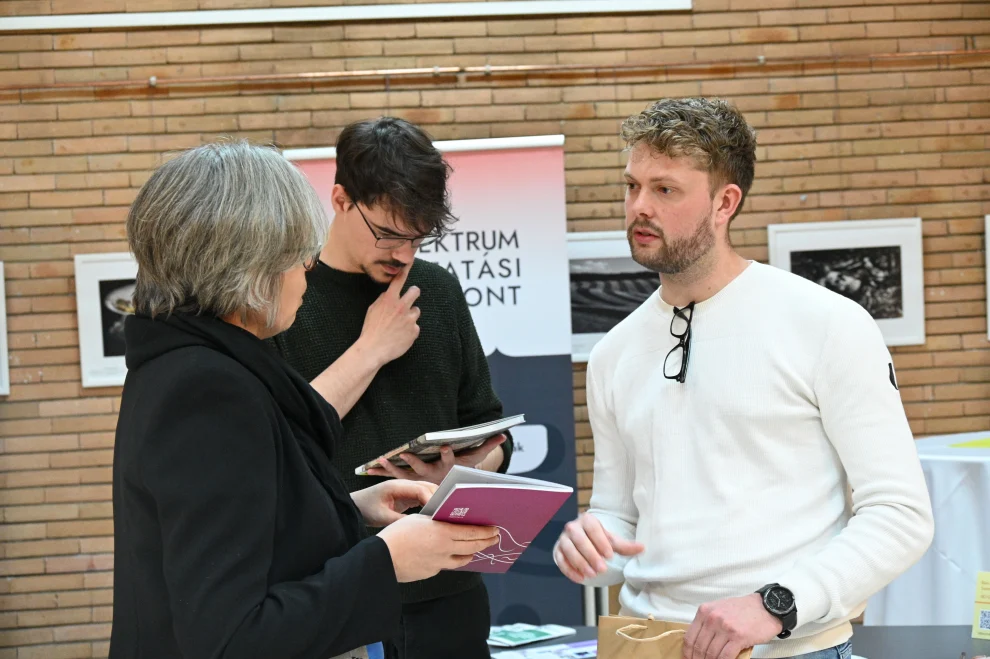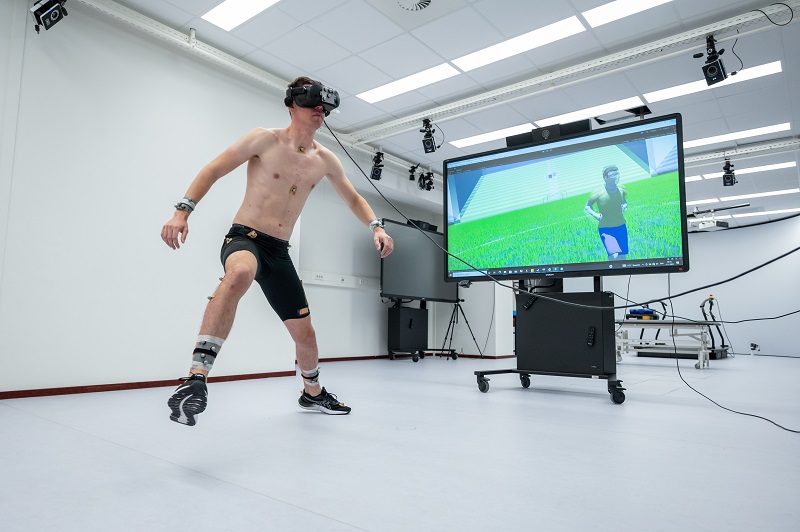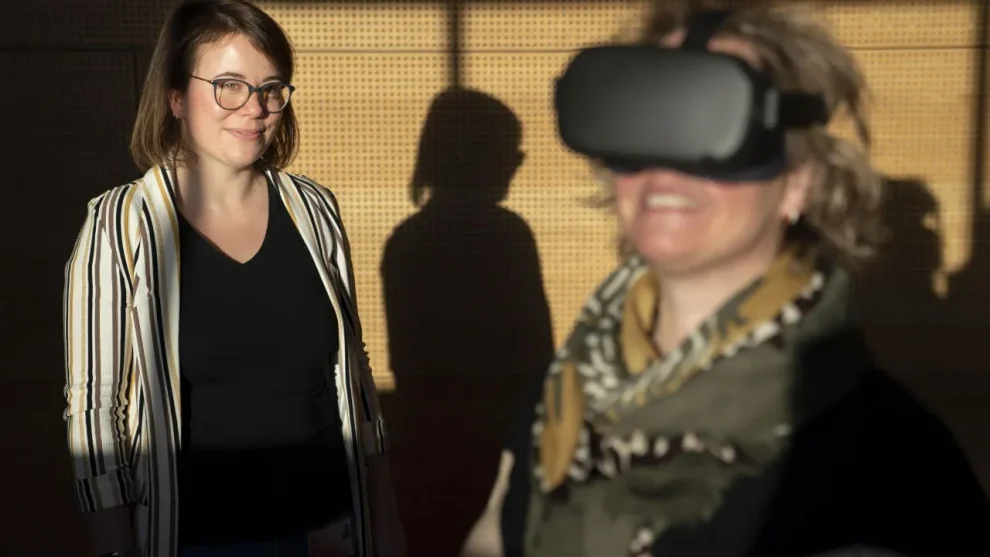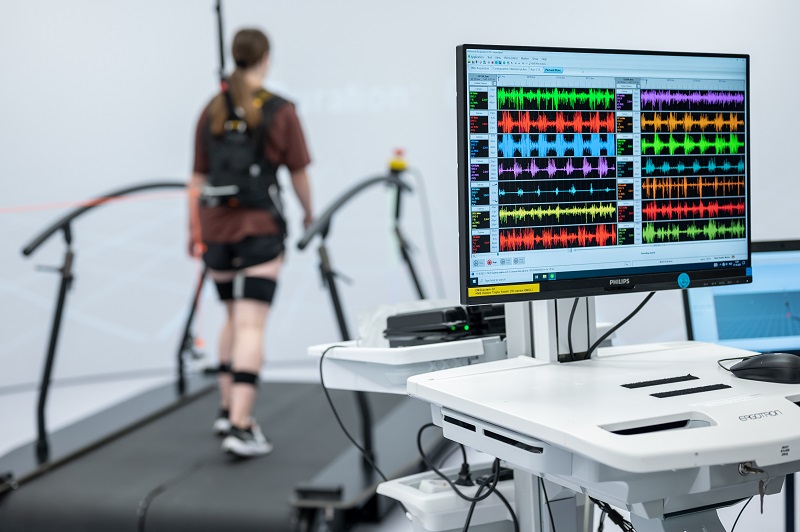Serious games for research
Serious Games as a Research Tool Games as a Method Serious games can contribute to scientific research in many different ways and at many different stages. Think of collecting quantitative…

On October 18, 2024, the closing conference of the GRACING project took place in Harghita County, Romania. From the 8D team, designer Bas Altenburg and account manager Sven Snoek were present to share our knowledge and experiences in design thinking and game-based approaches. The goal: to support heritage professionals in developing sustainable and playful approaches to heritage preservation. During the conference, five pilot projects were presented, showcasing how the best practices and the e-learning module, to which we contributed, have been implemented by local heritage professionals.
The GRACING project, an initiative of Spektrum Educational Center, aims to equip heritage professionals with new methodologies for sustainable heritage management, intercultural dialogue, and intergenerational collaboration. As experts in gamification and design thinking, 8D has been involved in writing the Good Practice Compendium of Sustainable Approaches to Cultural Heritage. This guide contains inspiring examples that help professionals preserve and present heritage in innovative ways.
In addition, we contributed to an online educational module for heritage professionals. This module specifically focuses on increasing engagement with cultural heritage through co-creation and gamification, making heritage interactive and accessible to the community. By developing these learning tools, we at 8D hope to contribute to a broader application of our expertise in heritage management.
The conference highlighted five pilot projects, each bringing heritage to life in a unique and engaging way:
Non recuso laborem – The Life of Bishop Márton Áron: In Sândominic, the life of Bishop Márton Áron was brought to life through a treasure hunt. Participants could discover more about his life story by scanning QR codes.
In the Footsteps of General Gál Sándor: This project in Ciucsângeorgiu used quizzes and word puzzles to offer insights into the life of General Gál Sándor, blending historical education with interactive elements.
Life in the Ethnographic House of Remetea: This project enhanced the visitor experience at the Ethnographic House with short film contests, puzzles, and QR codes, giving insights into traditional crafts such as bread baking.
The “Csángórózsa” Card Game: In Lunca de Jos, a board game was created to introduce children to the local folk culture in a playful way. QR codes direct players to the game rules.
The Milk Route in Frumoasa: This walking route in Frumoasa takes visitors on a journey through the milk production process, from farm to dairy factory, offering insights into both milk production and local architectural heritage.
During the conference, Bas Altenburg (designer) and Sven Snoek (Account Manager Europe) got the opportunity to experience how lessons from the online module have been integrated into local projects. Additionally, Bas gave a lecture on design thinking and game-based approaches in heritage project. Watch an impression of the conference on YouTube.
For our team, it was incredibly inspiring to see how participants had already applied insights from the GRACING project in their own heritage initiatives. This underscores an essential pillar of our work: that a human-centered, creative approach is key for innovation and impactful social change. A big thank you for the warm welcome, the boundless hospitality, and the many gifts, Spektrum Educational Center and Cultural Center of Harghita County!

All project results and the free e-learning module are available at culturalheritageproject.eu. The Good Practices guide also includes insights gained by Romanian heritage professionals during a study trip to Leeuwarden, where they visited sites such as De Kanselarij, De Blokhuispoort, Museumhuis Van Eysinga, the Princessehof Ceramics Museum, the Fries Museum, Treasure Hunt Games, A Guide to Leeuwarden, the Miniature Route, and our office, where we led a workshop on design thinking and serious gaming.
This project was co-funded by the European Union under the Erasmus+ Programme.
![]()

Accountmanager Europe

Serious Games as a Research Tool Games as a Method Serious games can contribute to scientific research in many different ways and at many different stages. Think of collecting quantitative…

Interested in the possibilities of serious gaming in healthcare and research, and want to know more about the process of doing PhD research in this field? On July 5, 2023,…

Serious games for healthcare are making their rise. But if you have never used such a game yourself, the whole idea remains somewhat abstract. What added value do games have for healthcare and what concrete examples are there? Get inspired by cases from our portfolio.